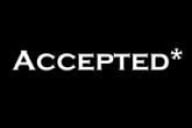You have /5 articles left.
Sign up for a free account or log in.
It is that time of year again for the Internet Culture Policy and Law Program! At its inception in 1995 called the “Computer Policy and Law,” and then as of 2001 the “Institute for Computer Policy and Law,” we recently renamed it “Internet Culture Policy and Law” (retaining the ICPL acronym) to reflect content shifts over time. Once the only program of its kind, it remains higher education’s go-to conference for issues revolving around, well, the Internet, its culture, law and policy writ large (international, national, institutional and operational). It has always been in gorgeous Ithaca, New York, and is sponsored by Cornell University’s Continuing Education Department. This year the dates are September 17-19.
People ask me what is ICPL’s secret sauce. That is an easy question to answer. The issues keep coming and we endeavor to map the program to those needs to address them over time. For many years the curriculum stayed focused on basics: the debate over whether cyberspace constituted a “space” separate from law. Once demonstrated to be both in and of this world, Steve McDonald has so ably detailed the legal history that has emerged since the formative days of the “CompuServe” case (upon which he worked as a young buck lawyer J) through the Communications Decency Act and the remaining section 230 of it that provides I.S.P.s with legal immunity for claims such as defamation but not for intellectual property. Steve Worona and Margie Hodges helped many CIOs and early policy officers create first generation institutional policies. And many skilled people – Scott Bradner at Harvard stands out in my mind at the moment – have walked us through the valley of the security shadows.
Also, we have great speakers. Last year we had Lisa Sotto, one of the top privacy lawyers in the country; Pamela Harris, Harvard Law grad and professor at John Cabot University talk about global Internet freedoms; Dan Goldstein, lawyer representing the National Federation of the Blind, and Prue Adler, from the American Research Libraries, talk about accessibility; Alan Fiscal, Pat McClary and Madelyn Wessell talk about contract formation in cloud computing; and of course, charter member and forever friend Steve McDonald discuss that national policy issue that has never once not made our program: copyright. Missed it? We video-taped those sessions for you.
This year we have a fabulous line-up as well. Harry Lewis from Harvard and Steve Wicker from Cornell will talk about privacy; John Kleinberg, “MacArthur Genius Awardee” also from Cornell will talk about networks and crowds; Urs Gasser on International Internet Governance; Fredrik Logevall on International Engagement; Oya Reiger on MOOCs and Thomas Howe on “cybercollege;” Kornelia Tancheva new digital literacies; yours truly on laws disturbed by the Internet and what to do about them; and Steve M. will update us on digital copyright. This year we will stream only one talk, Urs Gasser’s Internet Governance. Tune in? Directions will be on the landing page.
Or come to Ithaca! The final piece of what has contributed to the success of ICPL over the years is you! We have terrific people who come once or many times, or came in the early years and now want to see what has changed in their own thinking about these vital issues so they come back again. To keep the engagement intellectually and socially intimate, we cap registration at about 50 people and we all attend the same sessions together, no break outs. Registration has been robust this year, but we have five or six slots still ready to put your name on them. Would love to see old friends and meet new people. Hope to see you there!






